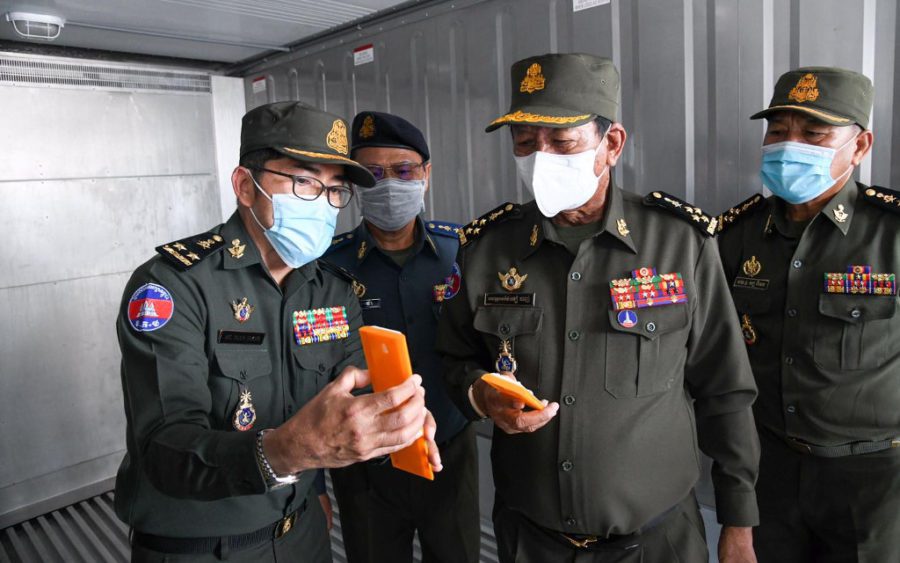The World Health Organization on Tuesday announced its approval of the AstraZeneca/Oxford-developed Covid-19 vaccine, one of three coronavirus vaccines Cambodia has authorized for use in the country.
WHO recommended the AstraZeneca jab for all ages 18 and above, days after Cambodia approved it for emergency use and after Prime Minister Hun Sen said he was advised he was too old to get a shot of the Sinopharm vaccine, which the government officially began rolling out last week.
WHO on Tuesday listed two versions of the AstraZeneca vaccine, made by South Korea’s AstraZeneca-SKBio and the Serum Institute of India, for emergency use, “giving the green light for these vaccines to be rolled out globally” through the Covax scheme, according to a statement.
Health Ministry spokesperson Or Vandine told VOD there was no information to share about the AstraZeneca vaccine yet, but there was “no concern since the WHO recognized it.”
Vandine said earlier this month that Cambodia planned to vaccinate up to 10 million people by next year. The vaccines authorized for use in Cambodia all require two doses per person.
In addition to China’s 1 million pledged Sinopharm doses, the country has received promises of 3 million doses from Australia and 7 million from the U.N.-backed Covax mechanism, according to Vandine. The government was looking to buy an additional 9 million doses, she said at the time.
The Health Ministry approved emergency use of the AstraZeneca vaccine, as well as a second Chinese-made vaccine, produced by Sinovac, on Friday, state media AKP reported.
The government authorized use of the Sinopharm vaccine on February 4, received 600,000 doses on February 7 and began vaccinating officials and journalists on Wednesday last week.
During the first six days of the vaccination rollout, 2,122 people were vaccinated, while 556 people were not allowed to get the shot due to health problems, according to the Health Ministry. The ministry said those with high blood pressure, acute respiratory diseases, allergies, asthma, skin swelling, immune deficiencies, lung and kidney problems, and those who are pregnant, breastfeeding or living with HIV cannot receive the vaccine.
Both Sinopharm and Sinovac vaccines are being evaluated by WHO, with a decision expected next month at the earliest.
The AstraZeneca vaccine has been found to have 63 percent efficacy and “is suitable for low- and middle-income countries due to easy storage requirements,” WHO said in its statement on Tuesday. Sinopharm’s vaccine has been reported to be up to 79 percent effective.
WHO’s Strategic Advisory Group of Experts on Immunization (SAGE) reviewed AstraZeneca’s vaccine on February 8 and recommended it for “all age groups 18 and above,” the statement says.
On February 5, Hun Sen said he would be the first to receive a dose of the Sinopharm vaccine on the first day of the rollout campaign, other than Defense Minister Tea Banh who had already been vaccinated. But later that evening, the prime minister said he would no longer get a Sinopharm jab because he was informed by the Health Ministry via an office of the Chinese Embassy that the vaccine could only be used by people aged 18 to 59.
“For me, I am more than 68 years old already, so I am not able to be vaccinated yet,” Hun Sen said in a Facebook post.
Banh, who is 75 years old, later said he had received the Sinopharm vaccine before February 10 and felt fine after getting the shot.
When asked on Tuesday how many others received the Sinopharm jab before the official rollout date last week, Vandine, from the Health Ministry, said she did not know.
“We do not know since when they inject it, they do not tell us. We know only the official [injections], but the unofficial [ones] we do not know because this is private business.”
Additional reporting by Khan Leakhena













